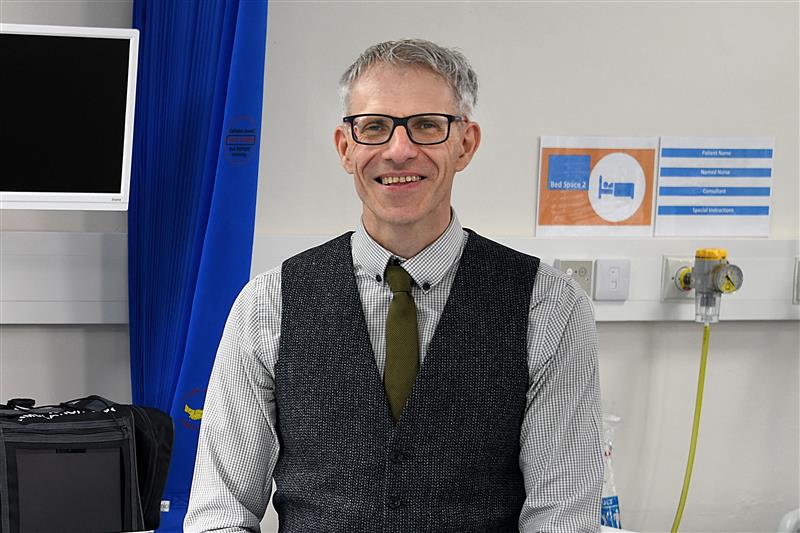

Tell us a little bit about yourself
I’ve been part of the University of Cumbria since January 2006, starting as a lecturer on the advanced practice programmes teaching pharmacology and non-medical prescribing. Before that, I worked as a pharmacist, where I had the responsibility of training and developing pharmacists and dispensers across a large pharmacy chain. That’s when I discovered my love for teaching. I decided to get a formal teaching qualification, and soon after, I spotted an opportunity to teach pharmacology at the university. I was fortunate enough to land the role, even though I was one of the least qualified candidates at the time. I think my passion for teaching and deep subject knowledge helped me stand out.
Since then, I’ve taken on various roles at the university, each offering new challenges and keeping my work fresh. Recently, I moved into the Institute of Science and Environment full time and became the programme leader for Biomedical Science, working with a fantastic team to shape the programme to be relevant and authentic for the industry. In 2024, we achieved IBMS accreditation, which was a huge milestone for us.
What is your practice background
Before joining academia, I worked as a pharmacist, giving me hands-on experience in clinical settings. One of my key roles was training and supporting other pharmacists and dispensers, which really sparked my interest in teaching. It was a natural transition into academia, where I could combine my industry knowledge with my passion for education. My background in pharmacy allows me to make complex topics like pharmacology and toxicology accessible for students, connecting theory to real-world practice.
Tell us about your research
I’m proud of leading the Biomedical Science programme to achieve IBMS accreditation in 2024. This accreditation is vital for students aiming to become biomedical scientists in the UK. I’ve also been lucky enough to secure a secondment to the Pears Cumbria School of Medicine, where I lead on pharmacology and prescribing. It’s exciting to contribute to both the biomedical and medical programmes and see the broader impact of my work. I’ve also been co-author on a book which should be published in Spring of 2025!
What modules do you teach?
I teach a range of clinical modules focusing on the diagnosis and prevention of disease, such as pharmacology, toxicology, clinical biochemistry, and anatomy and physiology. My favourite part of these modules is helping students understand how the body functions, how we diagnose what’s going wrong, and how we can use treatment to improve health. It’s incredibly rewarding to see students grasp these concepts and apply them to real-life cases.
What makes your course different?
Our Biomedical Science programme stands out because it’s designed to give students a truly comprehensive understanding of the field. Since we’re not tied to a single research focus, this allows us to explore each specialism without being restricted by a particular niche. We also have fantastic connections with the local NHS, giving students access to expert guest speakers and hands-on work experience opportunities. Plus, our recent IBMS accreditation ensures that the course meets the highest standards, helping students take the crucial first step towards becoming fully qualified biomedical scientists.
What advice would you give to students considering studying on this course?
My advice to anyone thinking about studying Biomedical Science is to be curious and open to the journey. This course offers more than just knowledge – it equips you with the skills to make a real impact in healthcare. Don’t be afraid to challenge yourself and embrace the opportunities for hands-on learning. With our strong NHS links and expert guest speakers, you’ll have the chance to see how your studies can translate into real-world impact. If you’re passionate about science and healthcare, this course will give you the foundation to turn that passion into a career.
What’s your favourite thing about teaching at Cumbria?
What I love most about teaching at Cumbria is the close-knit community we have. Even though our cohort sizes are growing, we still have a personalised approach, and I get to know all my students by name. This allows me to understand what works best for each individual and support. It’s rewarding to watch them grow and eventually move on to their careers.
Interesting fact about yourself
Although I’ve spent a lot of time in labs and pharmacies, I’m also a passionate rock climber! I’ve been climbing for years and still manage to climb at a decent level. My son shares this passion, and I’m proud to say he’s already secured a sponsorship to help develop his climbing career.
